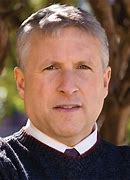As a biographer of Saint John Paul II, whose feast day is October 22, I’m often asked if I have a favorite statement of the great pope whose pontificate ran from October 1978 through April 2005. That is not an easy choice.
I came into the Catholic Church in large part because of John Paul II—fittingly, the month of his death. Three of his encyclicals were particularly instrumental in my conversion: Fides et Ratio, Veritatis Splendor, and Evangelium Vitae. Also influencing me profoundly was the pope’s Theology of the Body and, of course, his wider historical assault on atheistic Soviet communism, beginning with his transformational journey to his Polish homeland in June 1979. It was there that he fortified his people in their resistance to evil with three signature words, “Be not afraid.”
Those three words of John Paul II, echoing a call throughout the New Testament by Jesus, by the Angel Gabriel to Mary, and more, might be his one succinct exhortation that has resonated with me the most.
But among his statements, I like to point out one that has gotten almost no attention. It was given in December 1987. Speaking from St. Peter’s Square, Pope John Paul II urged Catholics to seek to do God’s will with the talents we have received, in causes small or large. It was a poignantly timeless message.
That year is striking for the political achievements on the world’s stage. There were tremendous breakthroughs by leaders of the world’s temporal powers—what we called the “superpowers.” That very month, on December 8, the Feast Day of the Immaculate Conception, U.S. President Ronald Reagan and Soviet General Secretary Mikhail Gorbachev signed the INF Treaty—the greatest nuclear-missile-elimination treaty in history. It was an unmistakable sign that the Cold War was peacefully ending.
As readers know, I’ve written more books on Ronald Reagan than any other subject; they include examinations of his faith and his partnership with Pope John Paul II. Reagan was a very religious man, and he personally saw such achievements like the INF Treaty as him using his talents to accomplish God’s will. “Whatever time I have left is for Him,” Reagan had pledged after surviving an assassination attempt in March 1981. He would use his talents for God, especially against what he had rightly called an “Evil Empire.”
John Paul II might have had such achievements in mind when he gave a blessing from St. Peter’s at the close of the year, Christmas week, where he pointed to the parable of the talents. “The story of the human race described by Sacred Scripture is, even after the fall into sin, a story of constant achievements,” said the pontiff, “in response to the divine vocation given from the beginning to man and to woman.”
The pope applied this philosophical statement to practical realities, to all men and women and their gifts. Such could be a challenging task, he conceded, but it was a duty nonetheless. “Anyone wishing to renounce the difficult yet noble task of improving the lot of man in his totality, and of all people,” averred the pope, “with the excuse that the struggle is difficult and that constant effort is required, or simply because of the experience of defeat and the need to begin again, that person would be betraying the will of God the Creator.” The pope pointed to “the Lord Jesus himself, in the parable of the talents,” who emphasized the severe treatment given to the man who hid the gifts he received.
Think about that. You probably do so every time you read that parable. The harsh treatment meted out to the servant who did not adequately use his talents is shocking. It seems to lack mercy and charity. As John Paul II interpreted, however, that tough treatment tells us that it is an affront to God not to use the talents He has bestowed on us.
“It falls to us,” said the Holy Father, “who receive the gifts of God in order to make them fruitful, to ‘sow’ and ‘reap.’” A deeper pondering of these severe words “will make us commit ourselves more resolutely to the duty, which is urgent for everyone today,” to work together for others, for the whole human being, and for all people.
The achievements then being made by men like John Paul II and Ronald Reagan were an extension of their commitment to do the work of God for others, for the whole human being, for all people. It was always a struggle, often fraught with defeat. It was, nonetheless, a commitment to be pursued.
In a speech at the University of Notre Dame on May 17, 1981, four days after John Paul II was shot in St. Peter’s Square, Ronald Reagan stated: “When great causes are on the move in the world, we learn we are spirits, not animals, and that something is going on in space and time, and beyond space and time, which, whether we like it or not, spells duty.”
Yes, duty—to do right and resist evil.
As John Paul II’s Catechism stated (section 409):
“The whole of man’s history has been the story of dour combat with the powers of evil, stretching, so our Lord tells us, from the very dawn of history until the last day. Finding himself in the midst of the battlefield man has to struggle to do what is right, often at great cost to himself.”
That applied not just to John Paul II, to Ronald Reagan, and their battles, but ours. Yes, also ours.
So, will you use your talents that God has given you? Will you stand up to the secular forces threatening our faith and religious freedom, or will you cower in fear of being called names for standing for what’s right?
You must. You have a God-given duty to use them. Do so and be not afraid.







